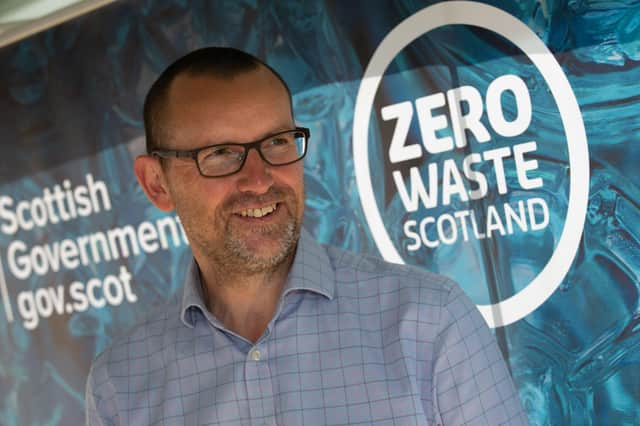Save money – and the planet – by dealing with food waste properly - Iain Gulland


By saving our food from going to waste, we can not only save money, but we can also save the Earth.
Even those who are good at creating delicious, next day, meals using their leftovers still have food waste they can’t prevent. We can’t eat eggshells, avocado stones, or dish up a banana skin – but it’s important these types of food waste don’t end up in the bin.
Advertisement
Hide AdAdvertisement
Hide AdReducing and recycling our food waste is one of the most significant things we can do in our everyday lives to protect our environment for future generations. We’re all quite savvy at managing our plastic waste, but we still need to get the message out further that food waste is harming our Earth and that we can all play our part.
The impact food waste has on the environment is huge, with around 600,000 tonnes of household food waste ending up in landfill every year in Scotland.
By changing our habits and recycling our food waste properly – for example, utilising our food caddies, local recycling facilities, or even composting at home – the waste we produce can help protect our Earth, rather than damaging it even further. This is due to food waste going to an anaerobic digestion plant where it’s converted into valuable fertilisers and green energy that helps power our homes. One weekly food waste caddy, for example, can power an average house for two hours.
The Scottish Government’s latest ‘Save Food. Save Money. Save the Earth.’ initiative showcases quick and simple steps people can take to reduce their food waste and recycle the waste they cannot avoid. By taking simple steps, households could save approximately £440 per year while having a remarkable impact on cutting emissions and helping Scotland on our journey to net zero.
Many are already taking action. In fact, during the pandemic, in 2020, more people than ever planned and managed their food better, with searches for ‘Food Waste’ by Scots increasing by 89 per cent on last year. This shift in attitude towards food waste was partly due to some items being difficult to purchase during lockdown, meaning we were shopping smarter. Time however is the main reason our behaviour changed as working from home suddenly meant we had more time to cook up leftovers and attentively recycle.
Now, with more of us back working in the office, our circumstances have shifted to pre-pandemic times – with more of us becoming busier again, perhaps grabbing a sandwich from the supermarket for lunch rather than taking in the leftovers from the previous evening’s dinner. We therefore need to try and make habitual changes so that the behaviours we’ve taken on board during lockdown are embedded into our everyday lives.
These changes can be small and simple to incorporate, such as planning our meals for the week – not only what we are going to cook but portioning it out correctly, so we’re not serving up too much. By having this meal plan, we can create and stick to a clear shopping list without making impulse food purchases. Following a shop, we can look to store our food properly, utilising our freezers as much as possible so that food keeps for longer.
By continuing to educate ourselves on the ways we can take action to reduce and recycle our food waste, we can all play our part in saving the planet. It’s real food for thought.
Iain Gulland is Chief Executive of Zero Waste Scotland
Comments
Want to join the conversation? Please or to comment on this article.